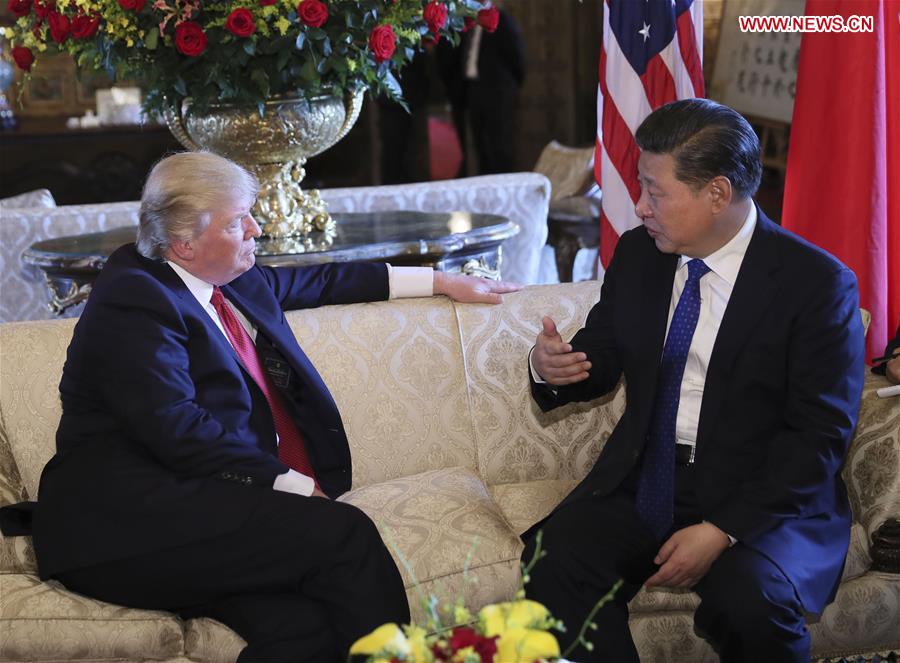
A quarter of a century ago, I was director of US affairs under the department of North America and Oceania of MOFTEC (now renamed MOFCOM). I was one of the negotiators involved in the series of China-US trade negotiations on market access, intellectual property rights, textile quota infringement, and prison labor products exports. Though I went to the private sector after that, I still care about the important relationship with the US. That is why I cannot refrain from writing about a fatal misunderstanding in the dialogue on trade policy.
Reciprocal trade treatment, the Trump administration’s new economic policy for China, was translated as “mutual benefit” in Chinese. This incorrect translation was made by the Chinese official translator in the 1980s, when China introduced GATT articles. The mistake was never corrected. The origin of this wording in English came from “the principle of reciprocal and mutual advantage”. Poor exposure to international trade laws before the 1980s leaves Chinese terminology without the concept of “reciprocity”. Alternatively, the closest approximation was the frequently quoted “equality and mutual benefit” (平等互利)” written in Five Principles of Peaceful Coexistence. In the 1980s, translators followed suite and translated it as “mutually preferential and beneficial” (互惠互利). The problem with such a translation could be easily found if one tries to translate the official Chinese expression of “reciprocity” back into English—the concept of reciprocity was missing because it didn’t appear in Chinese international economic terms at all.
The mistake spread widely and even contaminated the US government’s Chinese translation! On May 29th, the US government made an official statement on economic policy on China, outlining the basic attitude of the Trump administration. The US embassy in Beijing put the English version on its website with the Chinese translation. Unfortunately, this important statement again didn’t deliver what the US government meant to say—the Chinese translation was still wrong. The concept of reciprocity was absent in this important document again if one only reads the Chinese version on the US embassy’s website.
How did this mistake come about? China wasn’t involved with statutory international trade arrangements and negotiations until the 1980s. One may ask what Chinese negotiators did with the concept of “reciprocity”. It was because China was a developing country and so was not required to give reciprocal concessions in multilateral trade negotiations. Under the label of a developing country, China for many years wasn’t asked to reciprocate in trade.
The mistake could also be because “reciprocal and mutually advantageous” does not necessarily mean a certain figure, it could just mean a fair regulatory environment.
For the Chinese side, as the world’s second largest economy, it may now be time to catch up on the international economic principle of reciprocity.
Bystanders like me were helpless when the Chinese side kept offering purchase agreements in concrete dollar terms, while President Trump demanded reciprocity.
Consultations will go nowhere if a request from one side is lost in translation. With the pertinent misperception untouched, I seriously doubt whether the negotiators of both sides are on the same page. So, I tried to educate the Chinese side about the mistranslation and said that a wrong translation might hamper negotiations. The reason for me to step in is that the Sino-US relation is too important. We cannot afford mistakes. I was stunned when I found that the US embassy in Beijing also wrongly translated “reciprocity” on May 29th. It would be much better if the US embassy didn’t translate it into Chinese at all. The stakes in the ongoing trade negotiation are especially high and it is not acceptable for mistranslations to harm the understanding between the two countries.
How did the US government make this same translation mistake at this critical juncture? Well, being the number one economy in the world, there is almost no willingness for the US to stand in someone else’s shoes. Resolving disputes through negotiation needs the sincere exchange of ideas. I saw President Donald Trump’s effort to deliver when he announced trade action towards China and said reciprocity means equality. If negotiations failed because of things outside our control, we could do nothing but to accept it. But we cannot let it fail because of a misperception caused by mistranslations.
